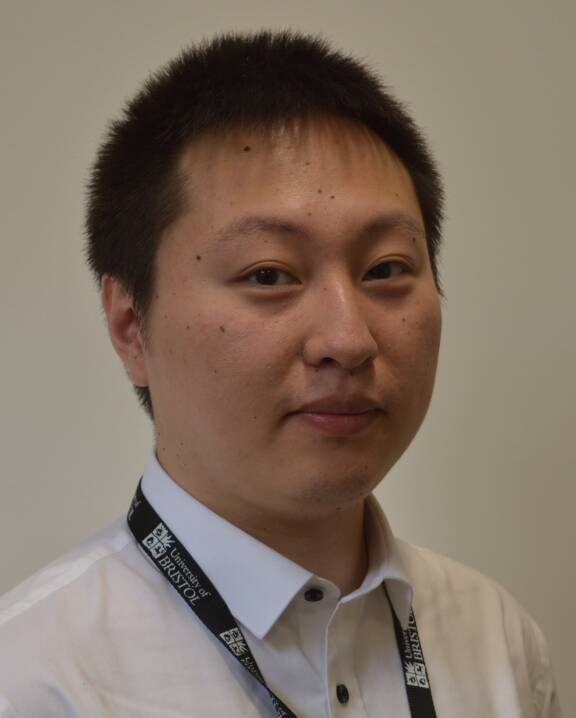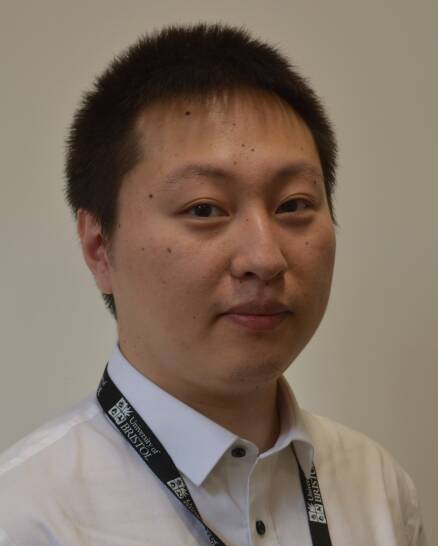
How long have you worked at RACE?
I joined on the 20th January 2020.
How did you find out about the role?
Before working at RACE, I was working at the University of Bristol as a Research Associate in nuclear robotics. At that time, I participated in a national-wide research project called RAIN (Robotics & AI in Nuclear), in which I got to know about UKAEA and RACE. I was told that there was a Control Systems Engineer position open, so I applied directly.
What’s your role within the team?
Currently, I am working on a series of projects called the IRTF (ITER Robotic Test Facility) programme. The programme team has been developing and testing prototype machines to realise remote maintenance at ITER. Thus, the team can provide RACE expertise in remote handling for the success in future fusion experiments. As a Control System Engineer in the team, I have contributed to various activities, such as, proposal preparation, requirement generation, control system design and development, etc., in five different projects within the IRTF programme now. The work may be quite intensive in different phases of a project, so I have to be very efficient with my time. Sometimes there are significant workloads for multiple projects at once. When there is a reduced need for control input for specific projects, I will direct my focus on other projects.
What is it about the role that you most enjoy?
I think the great thing is that I can work on research and development of the prototype robotic facilities that will be useful for the future fusion energy solutions, which is exciting from my point of view. It is different from solely theoretical research because we’re not sure if or when it will be used in real life or not. However, we know the design and experimental results of the IRTF projects will be informative for ITER as well as hopefully creating a great benefit for human beings.
You joined before lockdown, how did that change impact you?
For me I was working at Culham until the very last minute before lockdown was imposed, and although that was only for a few months, I was very used to life onsite. On one hand, I would say working from home is good, so you can save time on travelling. On the other hand, it feels strange because the place you are working is the same place you are living in, so it’s hard to distinguish when you are always staying in one place. In the future, I think it will be a good balance to be able to work from home and go onsite.

How long have you worked at RACE?
I joined on the 20th January 2020.
How did you find out about the role?
Before working at RACE, I was working at the University of Bristol as a Research Associate in nuclear robotics. At that time, I participated in a national-wide research project called RAIN (Robotics & AI in Nuclear), in which I got to know about UKAEA and RACE. I was told that there was a Control Systems Engineer position open, so I applied directly.
What’s your role within the team?
Currently, I am working on a series of projects called the IRTF (ITER Robotic Test Facility) programme. The programme team has been developing and testing prototype machines to realise remote maintenance at ITER. Thus, the team can provide RACE expertise in remote handling for the success in future fusion experiments. As a Control System Engineer in the team, I have contributed to various activities, such as, proposal preparation, requirement generation, control system design and development, etc., in five different projects within the IRTF programme now. The work may be quite intensive in different phases of a project, so I have to be very efficient with my time. Sometimes there are significant workloads for multiple projects at once. When there is a reduced need for control input for specific projects, I will direct my focus on other projects.
What is it about the role that you most enjoy?
I think the great thing is that I can work on research and development of the prototype robotic facilities that will be useful for the future fusion energy solutions, which is exciting from my point of view. It is different from solely theoretical research because we’re not sure if or when it will be used in real life or not. However, we know the design and experimental results of the IRTF projects will be informative for ITER as well as hopefully creating a great benefit for human beings.
You joined before lockdown, how did that change impact you?
For me I was working at Culham until the very last minute before lockdown was imposed, and although that was only for a few months, I was very used to life onsite. On one hand, I would say working from home is good, so you can save time on travelling. On the other hand, it feels strange because the place you are working is the same place you are living in, so it’s hard to distinguish when you are always staying in one place. In the future, I think it will be a good balance to be able to work from home and go onsite.